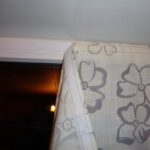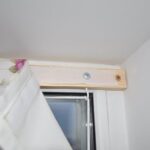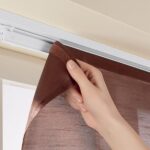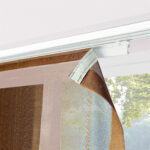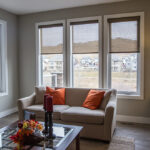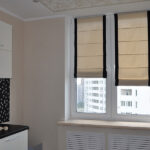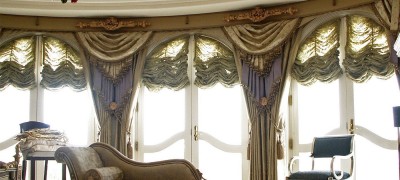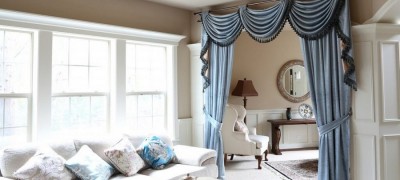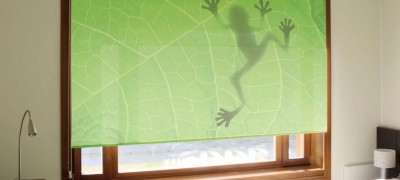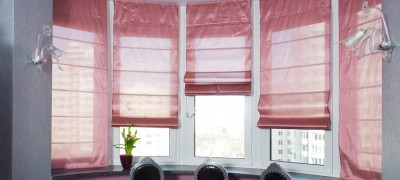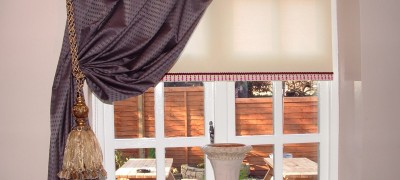Features of Velcro curtains
Modern ways of attaching curtains are much more diverse than even a couple of decades ago. Today, it is not necessary to have a drill and dowels in order to arrange a window opening, not to mention the options for attaching the canvas to the cornice. The Velcro fastening method is in great demand. What are its features, and for which windows is it best suited?
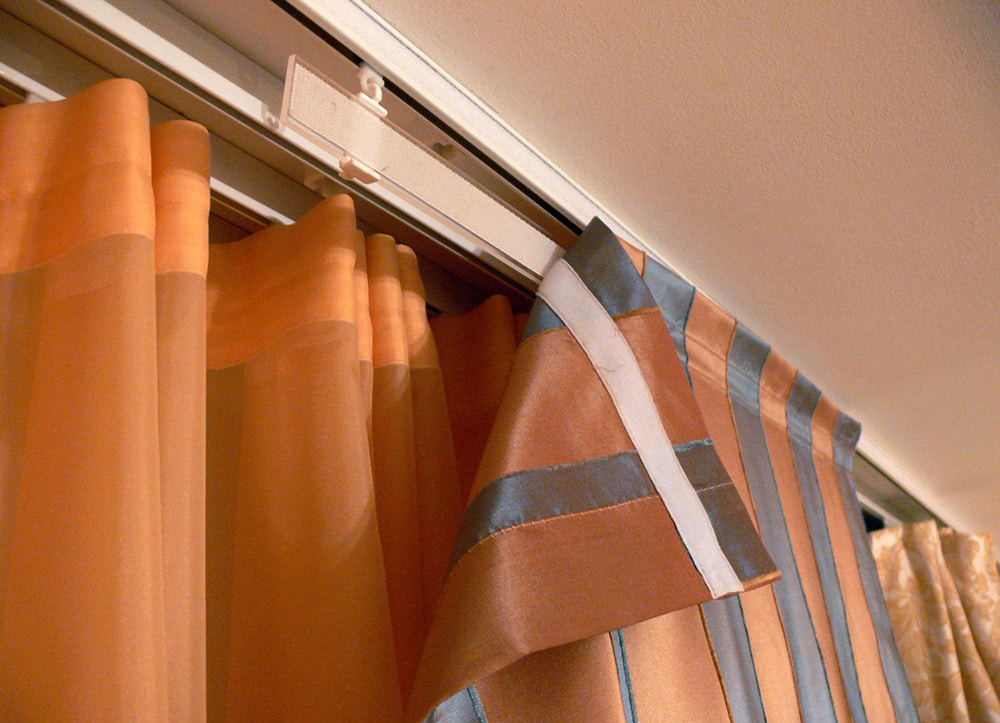
Mounting features
Curtains can be attached to the cornice in several ways, in particular using:
- Drawstrings and braid;
- Drawstring and hinges;
- Hooks and all kinds of clothespins;
- Eyelets;
- Velcro.
And it is the last option, in the opinion of the majority, is considered the simplest, which does not require special knowledge and skills, as well as financial and time costs.
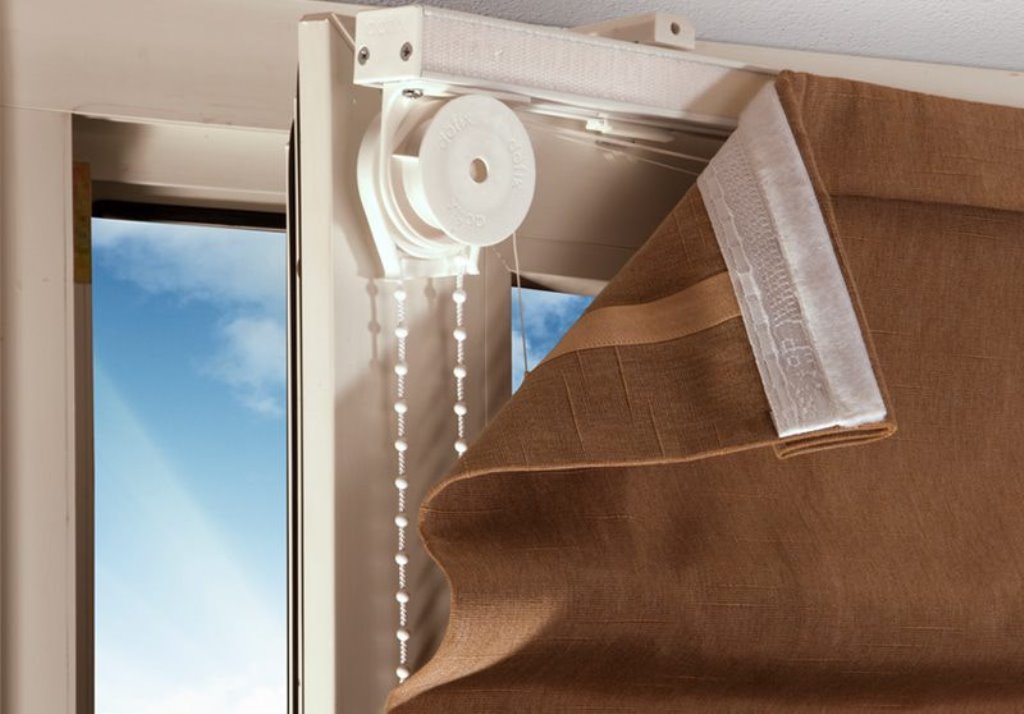
Velcro (that's what it's called) has proven to be effective and functional. Thanks to her, you can easily hang curtains on a plastic or wooden window. This method is especially relevant in small rooms where it is not possible to attach the cornice, and the curtain, which is not close to the wall, further reduces the space. When fastening the curtains with Velcro to a plastic window, you preserve the integrity of the finish of the window opening.
What is Velcro
It is difficult to imagine a more common option for attaching something. It is used in the manufacture of clothes, shoes and accessories (bags, purses, all kinds of covers), as well as many other things. The "mechanism" consists of two tape elements: on one there are microhooks, and on the other there are microloops. With a light touch, the hooks cling to the hinges and form a fairly reliable attachment.
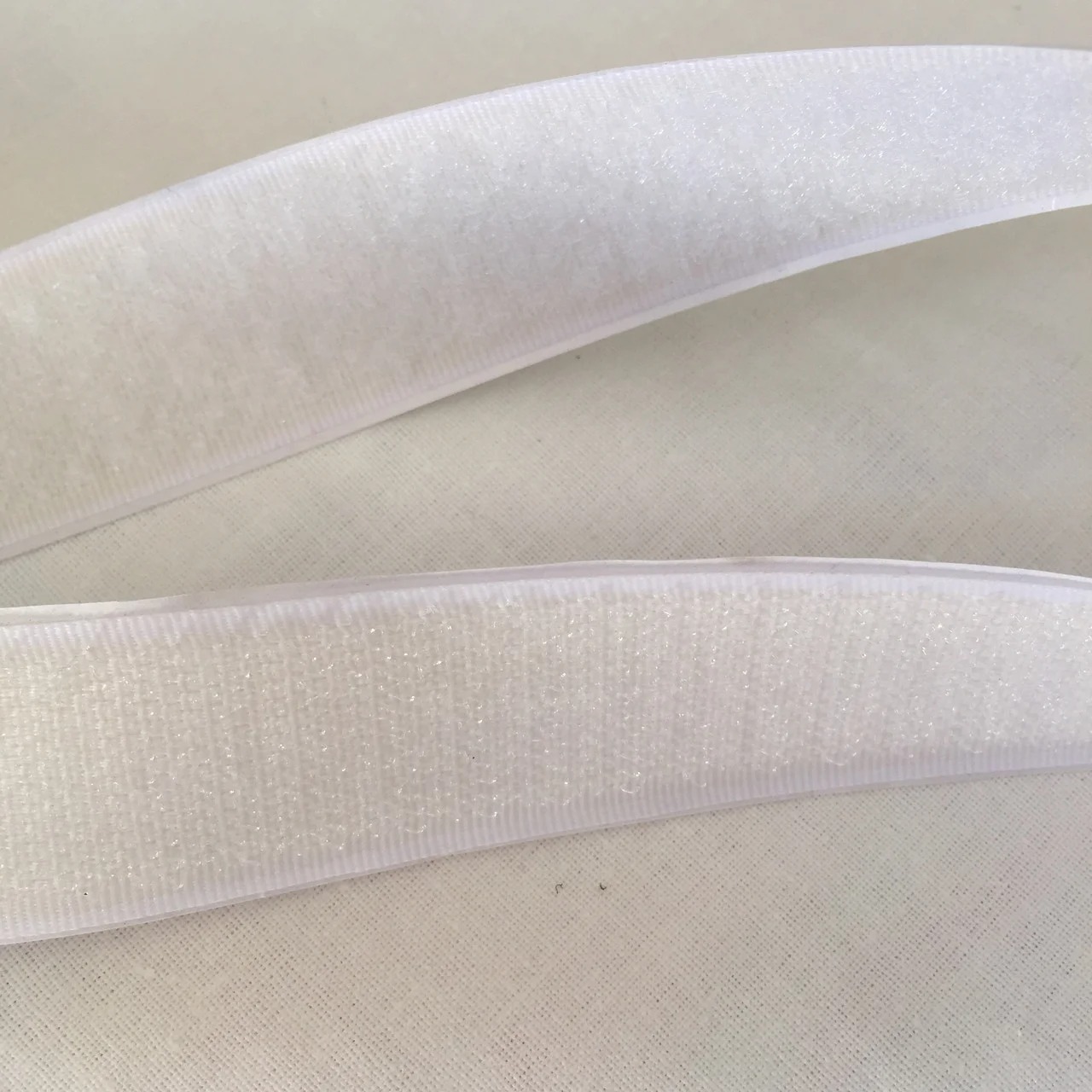
The main advantage of Velcro is durability. This mounting option will serve you for many years without losing its ability to secure the necessary elements and parts. Velcro is also appreciated for its ease of installation and maintenance. You can attach the Velcro, either with glue or double-sided tape, or with a regular needle and thread. Finally, curtains on such a mount perfectly complement the interior in any style.
How to install Velcro curtains with your own hands
Before starting work, decide on the location of the curtains: on the wall, or directly on the window.
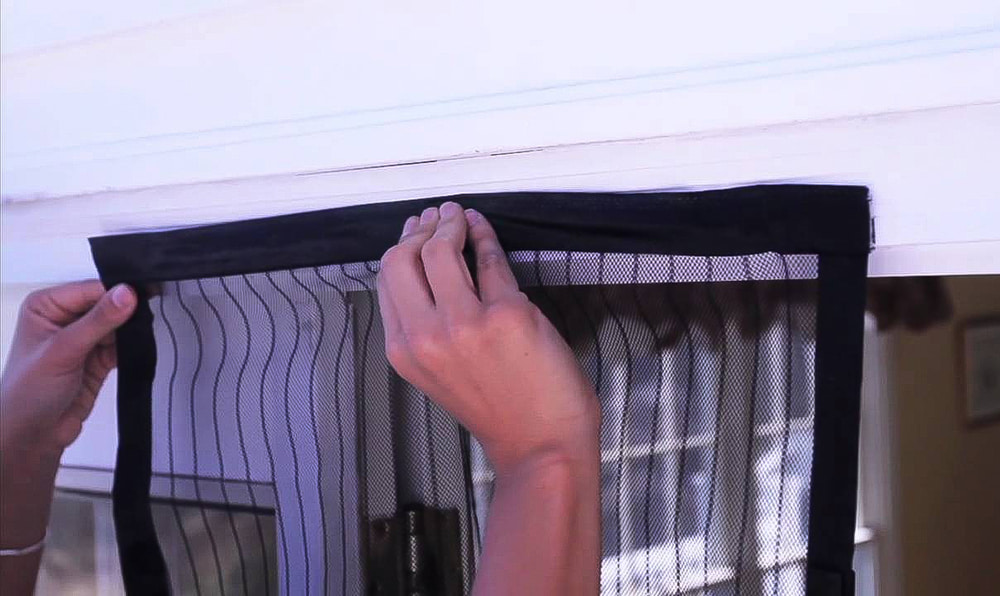
When mounted on a window, Velcro is glued either along the perimeter of the window opening, or only on top and on the sides. If you decide to attach it to the wall, then the hard part of the Velcro must be fixed with screws or glue directly above the window, and the soft part of the Velcro is sewn to the curtain from the wrong side.
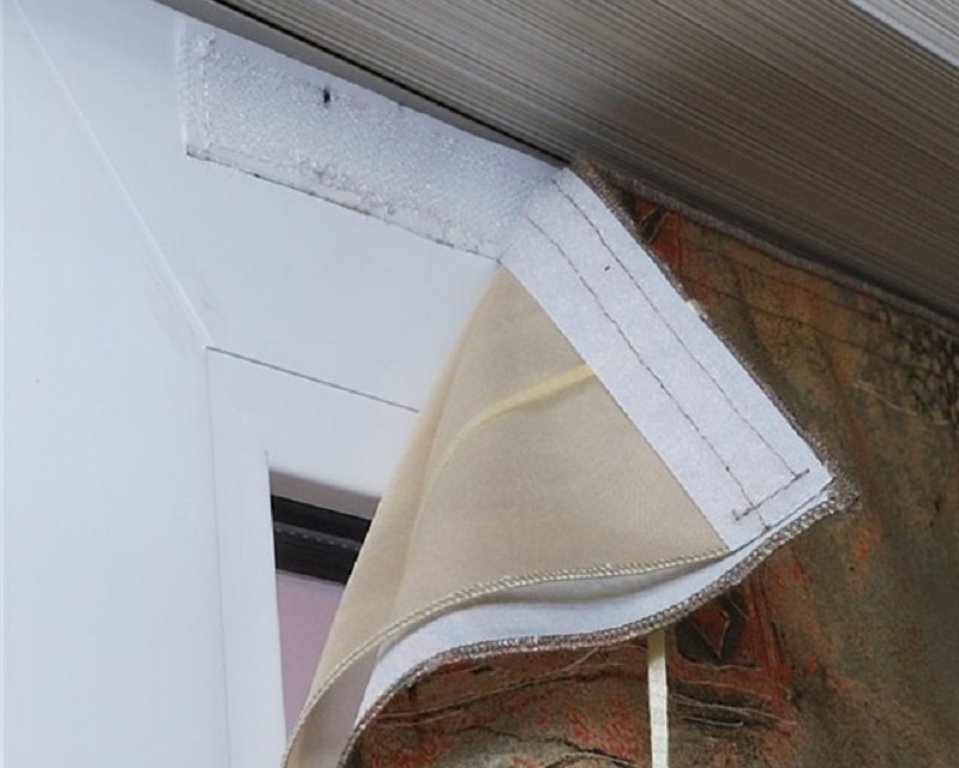
There is also a fixing option - to a wooden plank. In this case, the hard part of the Velcro is glued to the tree, and the bar itself is fixed on the wall with self-tapping screws.
Types of curtains
There are three main types of curtains that are attached with Velcro:
- Short curtains with fixation on the cornice;
- Roman curtains;
- Roller blinds.
Short curtains
This option is considered ideal for decorating a window opening in a kitchen or balcony. It is in these rooms that dust accumulates most of all, an atmosphere of high humidity is created, and soot from the street or during the cooking process settles. All this suggests that the curtains will have to be washed often, which means that you need to choose a fabric that will retain its original appearance, despite frequent washing. Natural fabric (linen, cotton) is best suited for short curtains, material with the addition of synthetics (polyester, for example) is welcome. Bamboo curtains will make the kitchen more cozy and homey.
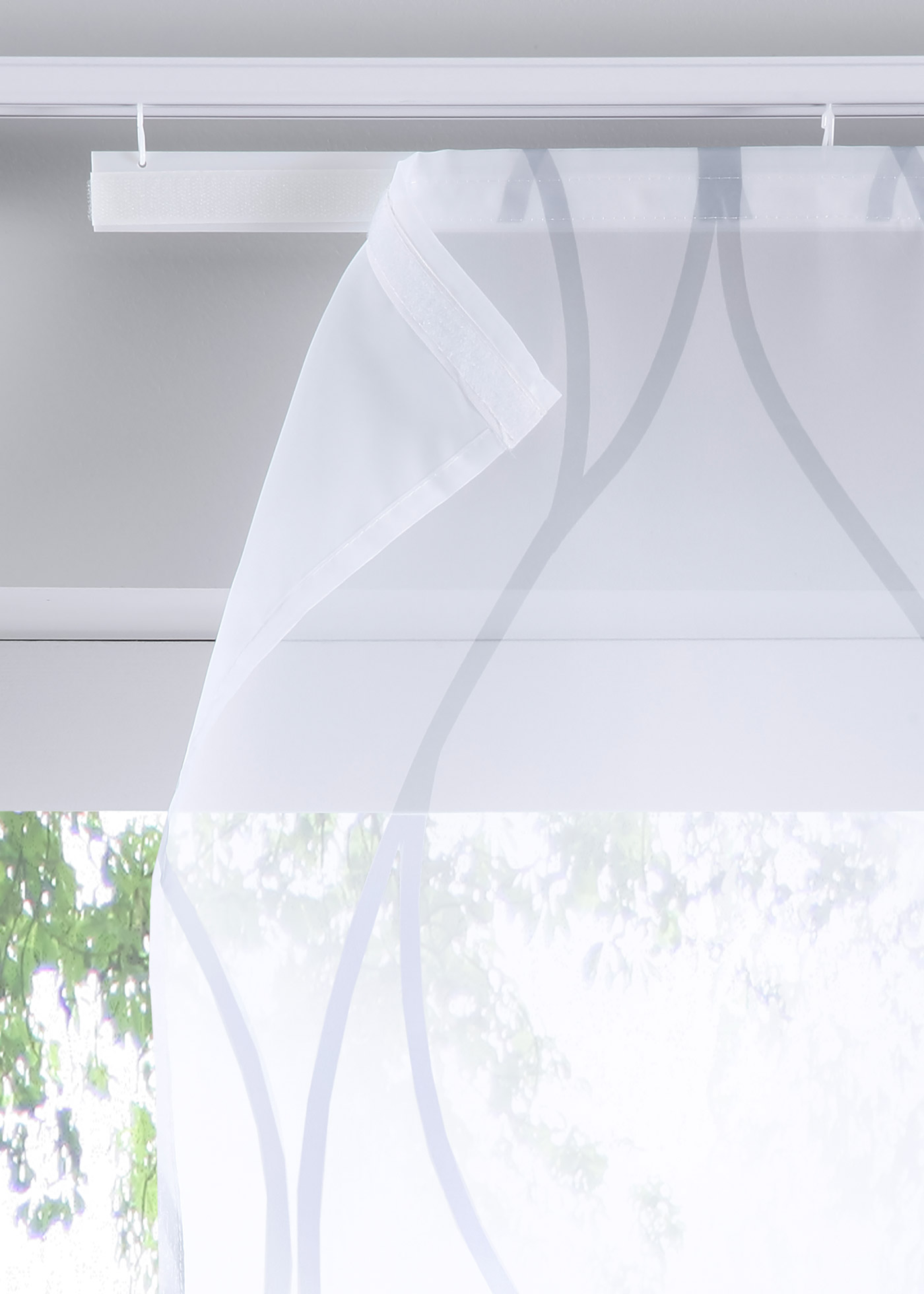
Velcro fastening is considered one of the most suitable for the kitchen because it makes it easy to remove and hang curtains. And the curtains on the loggia with Velcro, allow you to arrange a secondary space in a full room.
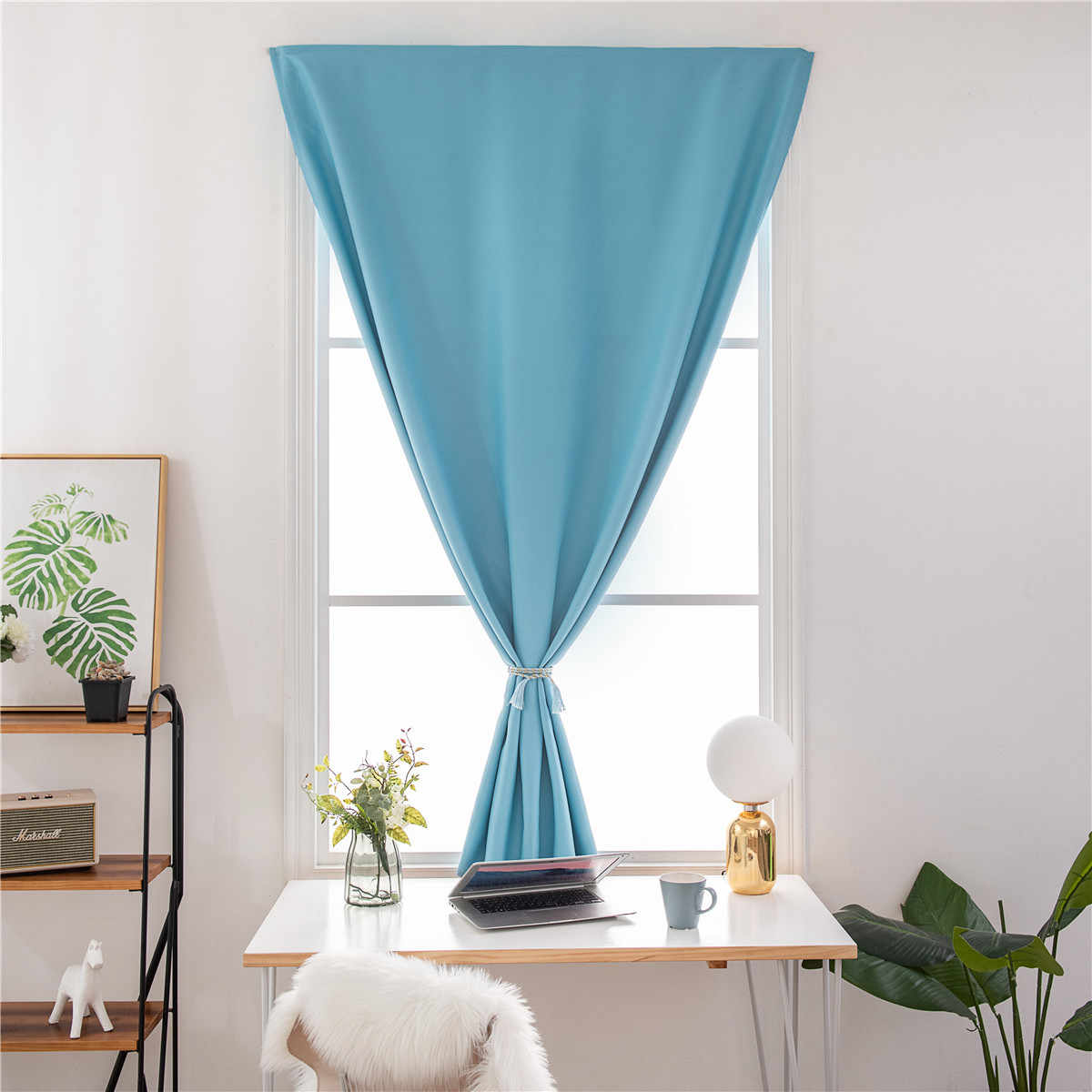
Roller blinds
Curtains that roll up are called roller shutters, blinds or roller blinds. In the upper part of the structure there is a shaft on which the curtain fabric is wound. Most often, a closed design is used, which provides for the presence of a special cassette that hides the shaft. This cassette is light enough to be attached with Velcro.
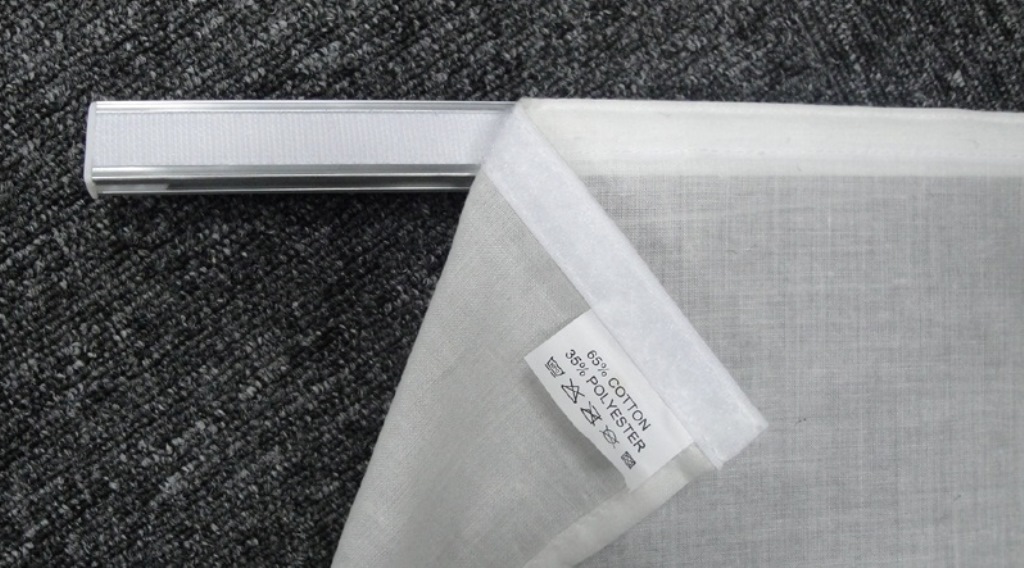
The main advantages of roller blinds:
- Convenient opening and closing of the window;
- There is a possibility of remote control if an electric drive is installed;
- The colors and textures of the canvases are so diverse that you are guaranteed to be able to create your own unique version;
- Such curtains leave the window sill free, which means that you have additional functional space, which, you see, is very important for the kitchen;
- When attaching curtains to the window frame, you do not have to change the position of the roller shutter in order to open or close the window;
- The lightness of the structure allows it to be fixed with Velcro tape, in other words, there is no need to violate the integrity of the structure of the plastic window and the adjacent wall and ceiling.
As a rule, the mass of a cassette with a shaft does not exceed one kilogram and such a curtain can be fixed directly to the window. Due to the fact that the velcro curtains completely follow the line of the window, space saving is guaranteed. This is especially noticeable in small kitchens. If windows on a balcony or loggia are made using roller blinds, then, most often, several cassettes of the same size are used. Roller blinds are an ideal way to change the degree of light in a room, as they say, with a slight movement of the hand.
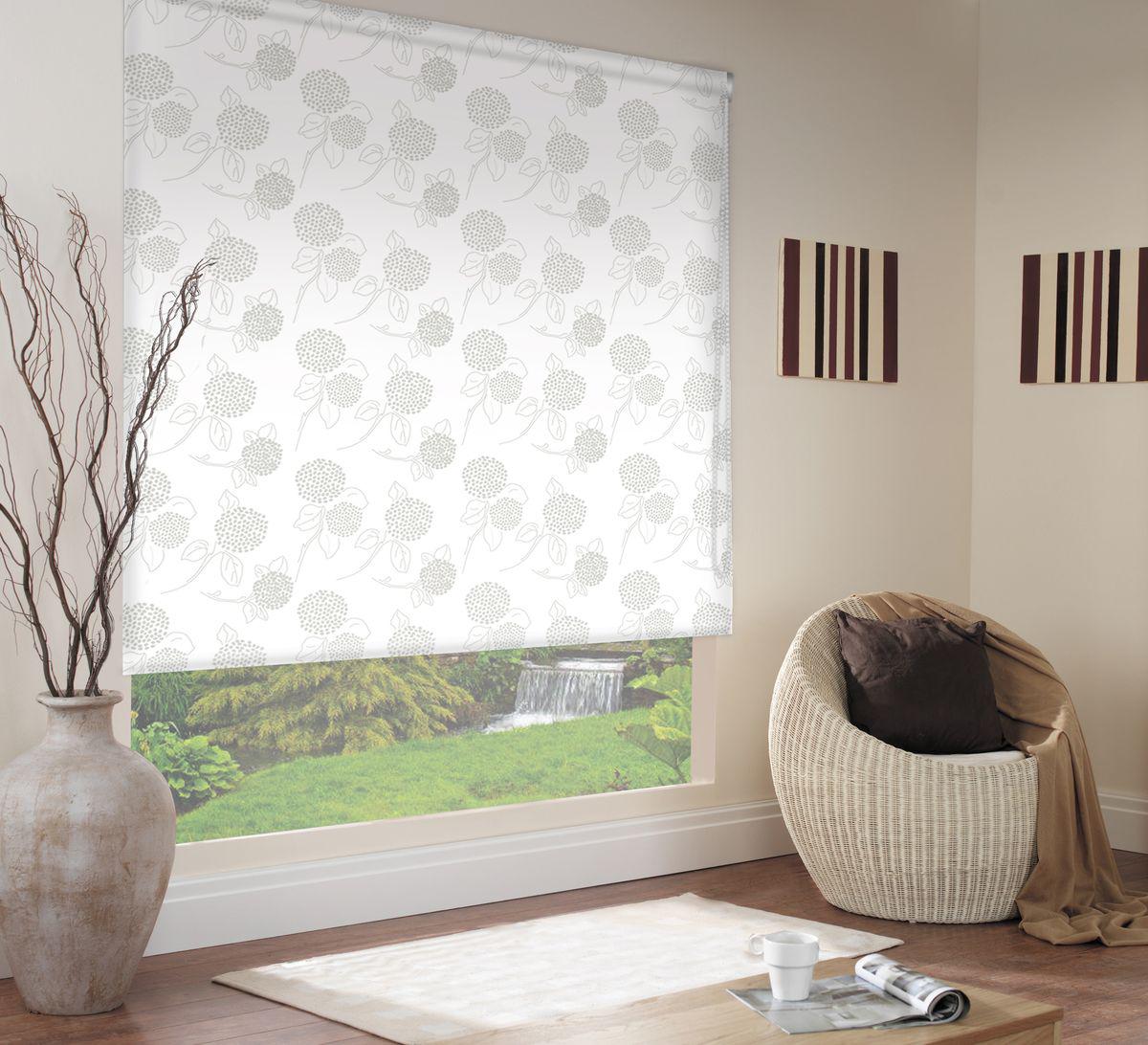
On the one hand, the adhesive tape securely fixes the structure, and on the other hand, it allows you to easily remove the curtains when necessary. Finally, hanging the curtains after processing is also not difficult, and no special devices are required for this.
Roman curtains
Roman canvases are one of the few models that surprisingly combines timeless classics and modern Art Nouveau. Such curtains become a worthy element of the interior in any style. When the canvases close the window, they look like a straight canvases, and when raised they form soft volume folds, thanks to which the name "Roman" appeared.
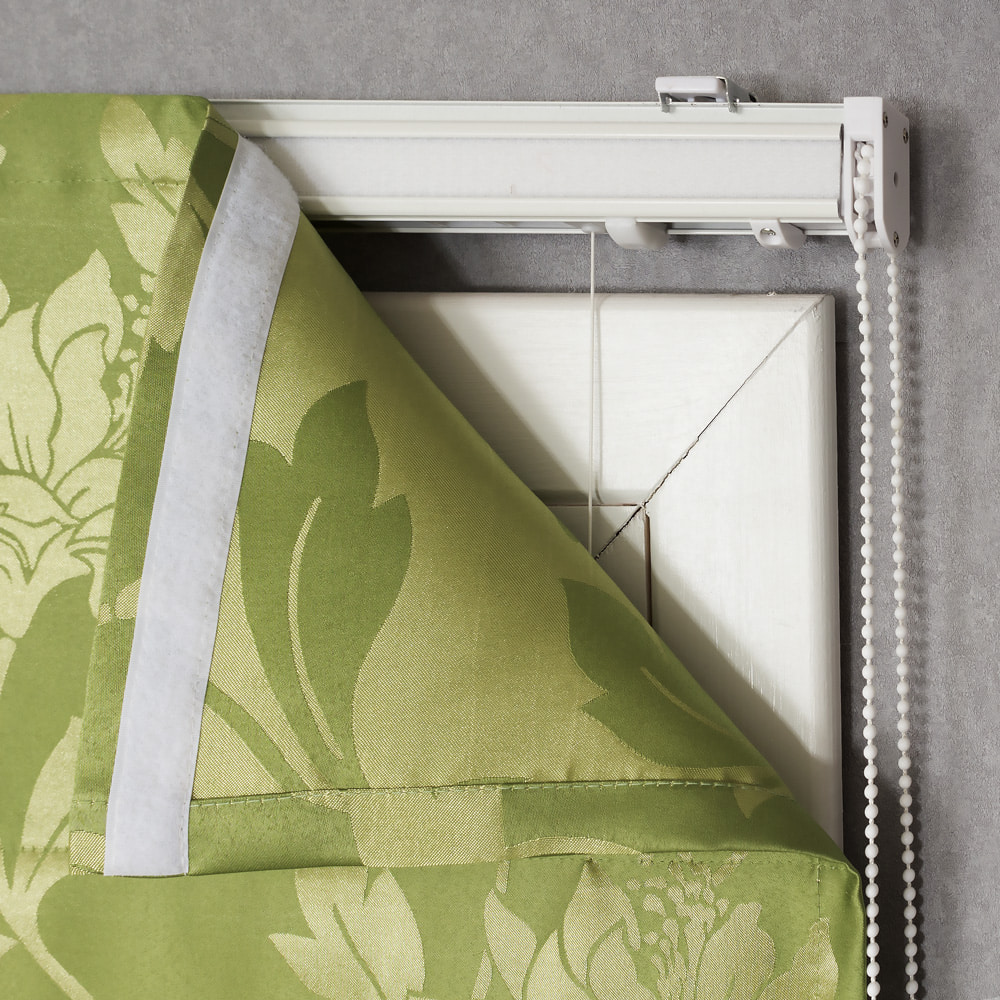
The main advantages of Roman blinds:
- They take up a minimum of space and guarantee maximum space.
- Amazingly easy to use.
- Today there is a rich assortment of fabrics available that can be used to make roman shades.
- An elementary way of attaching to a window opening (including a plastic one).
- You can remove or hang curtains in minutes.
- It is enough just to make it yourself.
In order to create a Roman "masterpiece" with your own hands, you need a piece of fabric of the required size, Velcro, a weighting agent, rings and cords.
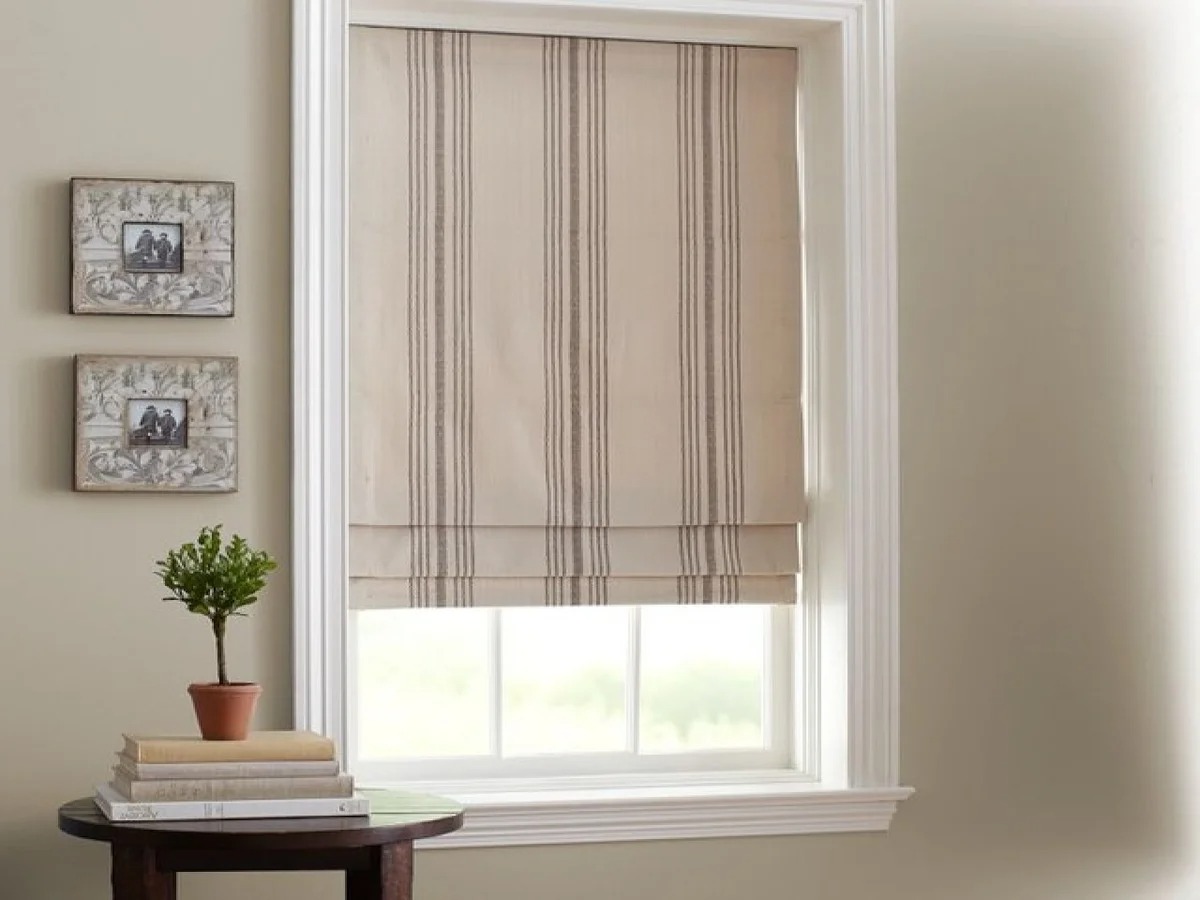
Step-by-step instructions for making Roman blinds
It all starts with measurements. First, decide where the Roman canvases will be located: directly on the window opening, or will be attached to the wall near the window. Having measured the height and width of the window opening, add 5-7 cm at the sides, and 10 cm at the top and bottom for attaching the weighting agent.
In order to result in even folds at the same distance, you need to make a calculation. An approximate calculation table for such curtains is available today. In general terms, the distance between the folds should be approximately 30 cm, and knowing the height of the curtain and the size of the window opening, you can easily determine the number of folds.
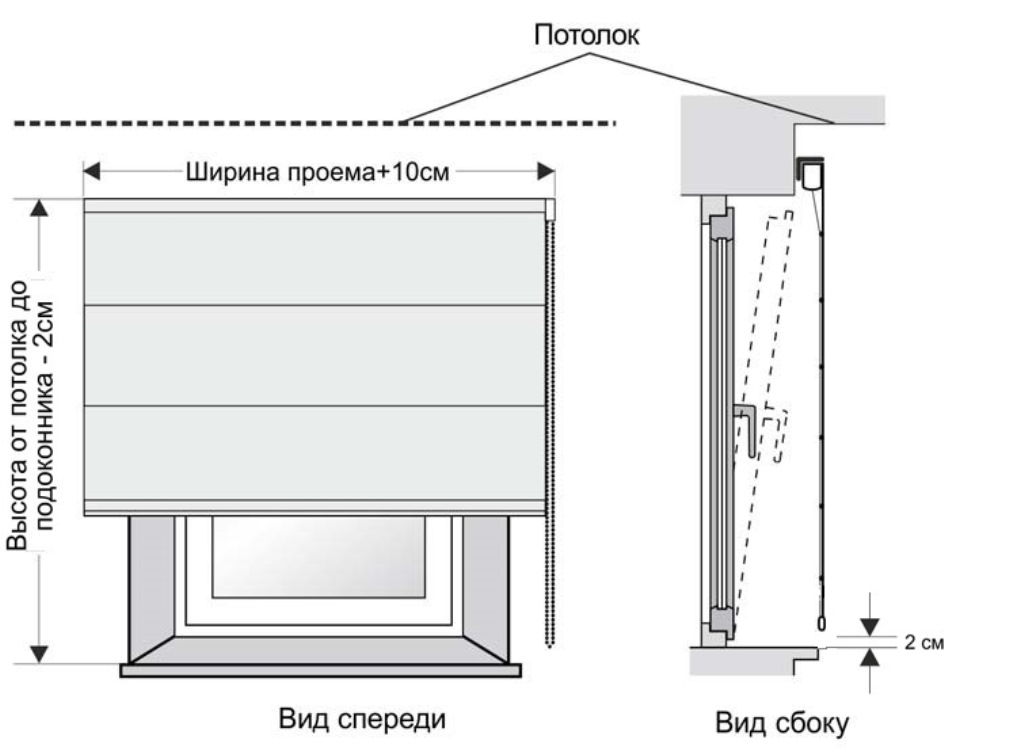
Required tools and materials:
- Cloth, threads, needles, scissors;
- Measuring and cutting tape;
- Weighting bars (wooden or plastic);
- Velcro tape for fixing the structure on the cornice;
- Bars of wood, plastic, or metal that will thread across the web to form plastic rings and nylon cords.
So, having made measurements of the window, and having bought the right amount of fabric, you can get to work. An important nuance: you can make your curtains single-layer or double-layer, it all depends on the density of the fabric and on your expectations. If you need complete protection of the room from light (well, or at least the maximum possible), it is better to make the Roman canvases in two layers. In this case, you need to purchase twice as much material.
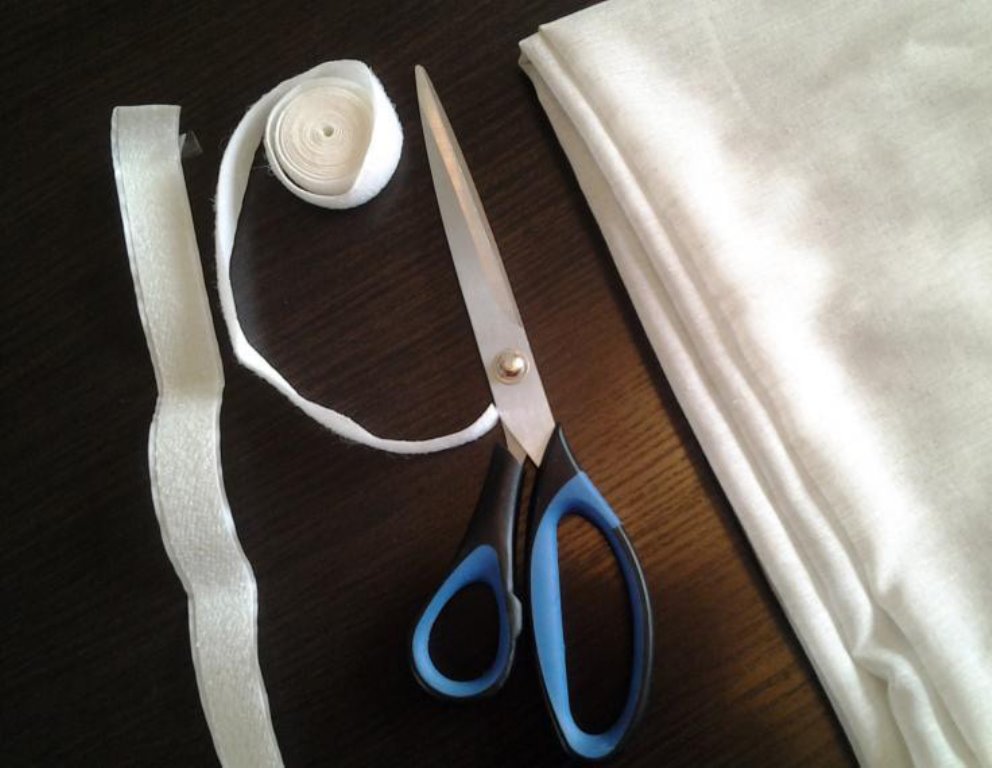
The next step is to decide on the number of folds. To do this, either use the table of approximate calculations, or calculate the number of bends "by eye".
Cut the fabric, remembering to leave seam allowances and "pockets" for the weights. And from the seamy side, outline the places where the transverse rods for the folds will be inserted.
After the pattern has been transferred to the fabric, double-check it carefully so as not to get any unpleasant surprises later. You can now cut and double hem the edges. If you wish, you can use a special cobweb tape for hemming, with the help of which the edges are "glued" after processing with a hot iron.
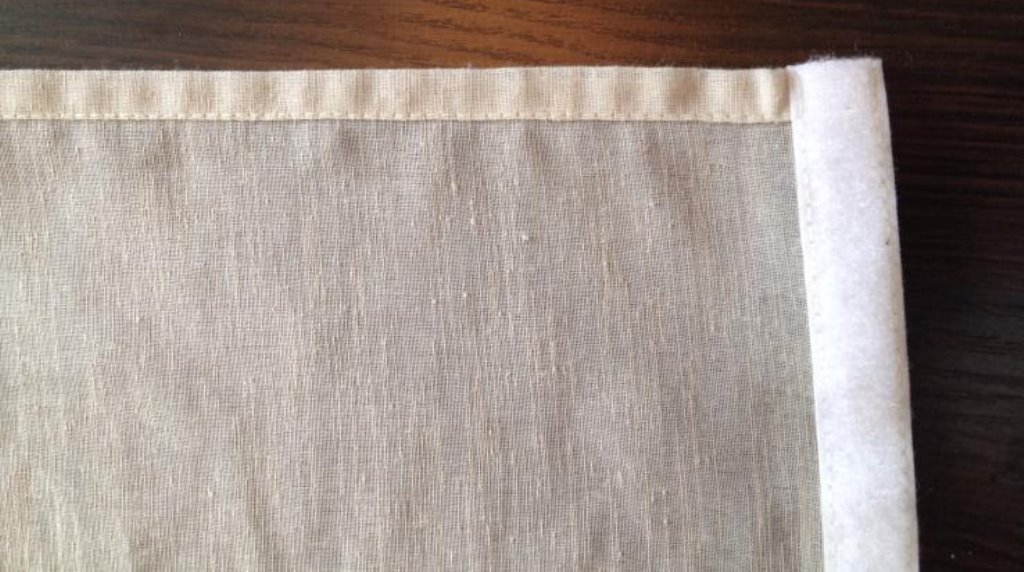
If you decide that your curtain will be double, then sew both layers, folding them right side in, and leave a small section unstitched so that you can turn the canvas out.
And now you need to make holes for the transverse rods. For this purpose, you can use drawstrings or a special edging tape. It is sewn like a pocket, and a hole is left on one side in order to insert the rod, and then easily pull it out before washing the Roman shade. A prerequisite for rods is that they must be smooth and sliding so that they can be inserted without much effort.
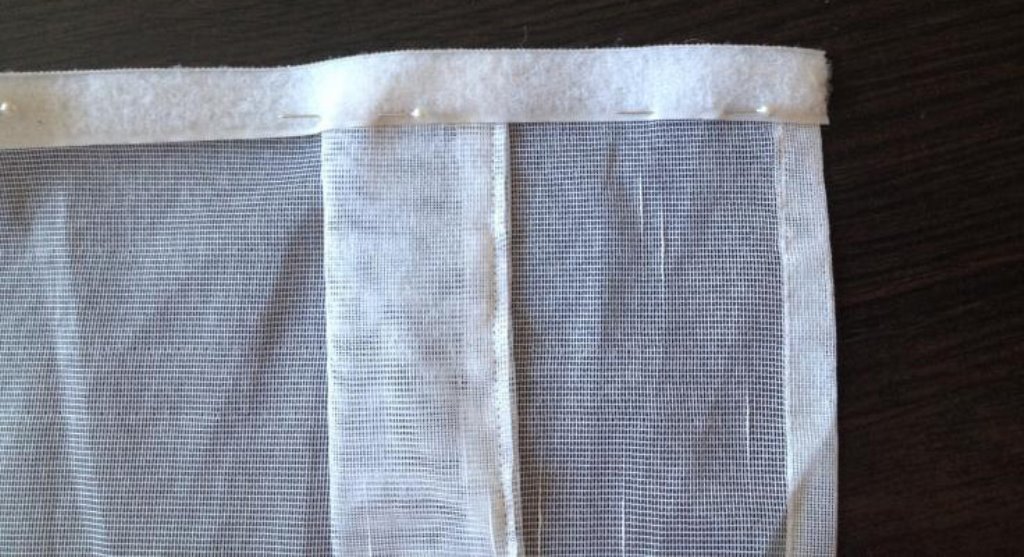
The rings are sewn to the pockets by hand. The number of rings can be arbitrary, the main thing is that with their help the curtain can be easily lifted.
One part of the Velcro is sewn to the upper edge of the curtain, and the second is glued to the cornice. The lower part of the curtain is processed in such a way that a drawstring is obtained, into which a weighting agent will then be inserted.
The cords are threaded through the rings from the bottom up. All cords are tied in a knot, and the curtain itself is rolled up and fixed with a tape.
Now the cornice is fixed in the form of a plank on the frame or on the wall. If we are talking about plastic windows, then you can use double-sided tape for fastening.
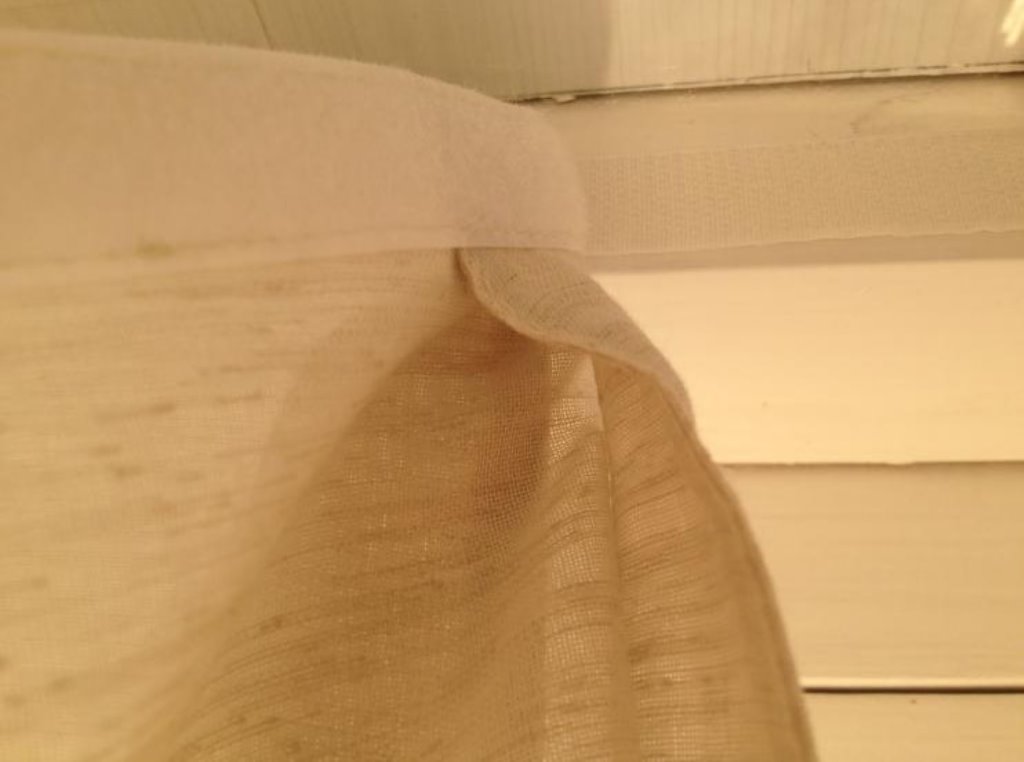
After the curtain is hung over the window, remove the tape and adjust the tension on the cords. Check the lifting mechanism. And in order to keep the canvas in the position you want, fix the cords on the side of the wall hook. Well, with minimal financial costs, the design for decorating a window opening is ready for use!
Velcro curtains - regardless of the model of the canvases themselves - this is an excellent option for decorating any interiors. Functional, stylish, space-saving and very easy to operate. And the ability to make it yourself is an additional argument in their favor.
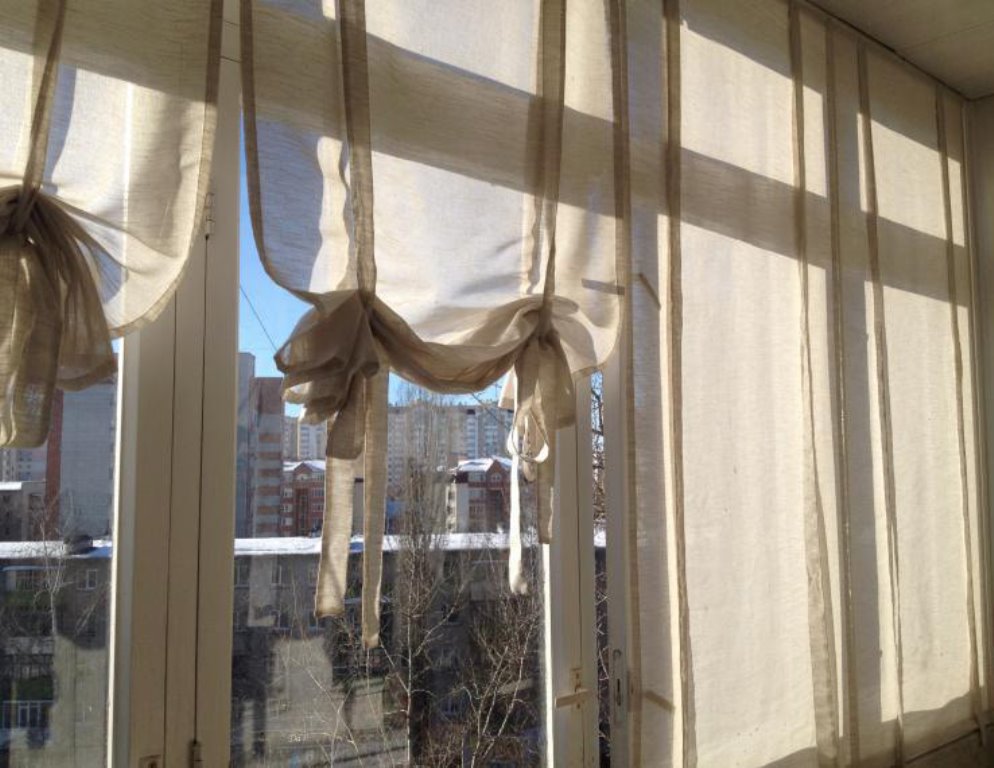
Video: do-it-yourself hinged curtains with Velcro
